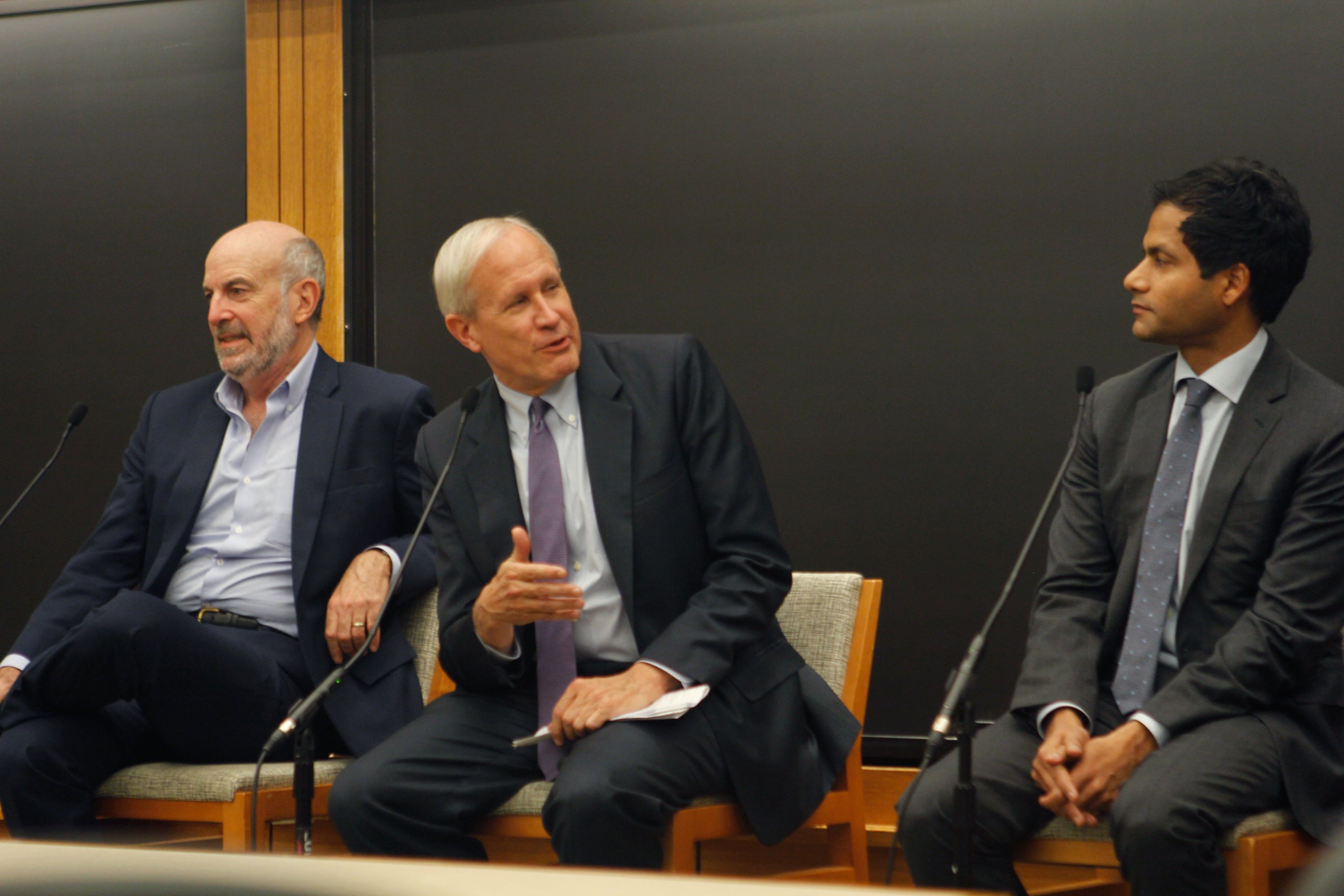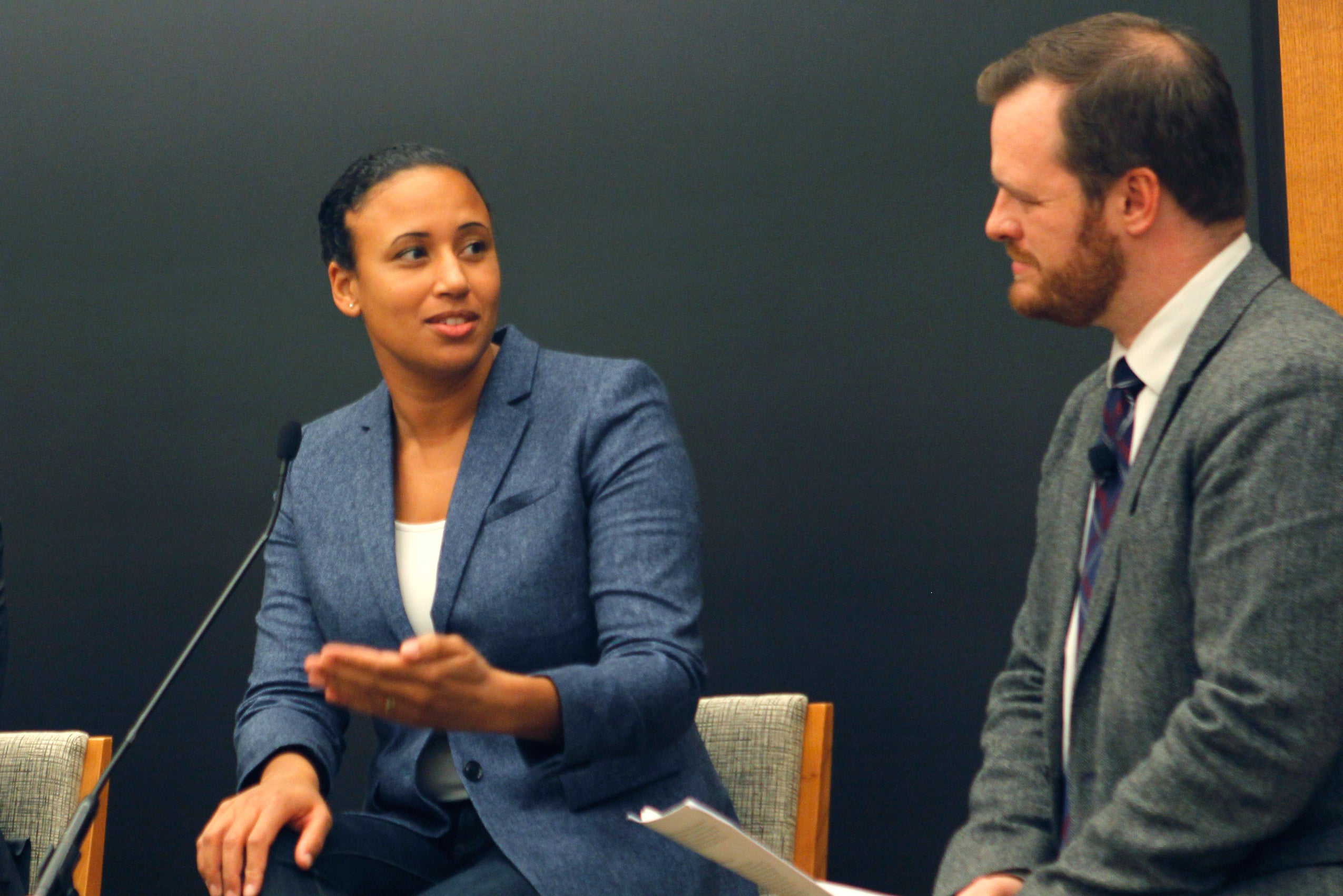Governmental transparency has become a critical issue in the public discourse, especially now that a majority of our population is born digital. Increased levels of interest in electronic access to government information and service, paired with the lowered costs of collecting, distributing and accessing government information online have propelled freedom of information and secrecy practices to the forefront of the public debate.
This fall at a symposium presented by the Berkman Klein Center for Internet & Society at Harvard University titled Transparency and Freedom of Information in the Digital Age, representatives from academia, government and civil liberties organizations examined the present state of play with respect to government transparency and freedom of information.
Though the internet has democratized communication between citizens and their representatives, there remains a need to fine tune the mechanism by which citizens access the enormous amount of new information. The symposium, which included remarks from individual speakers as well as two panel discussions, offered a variety of perspectives on some of the related ethical, normative and legal dilemmas.
The main conduit by which citizens can access government records is the federal Freedom of Information Act passed in 1966. But the process can be daunting; long delays by agencies due to limited staff resources or agencies’ efforts to control their public image can render once timely information irrelevant. And full denials to disclose may prompt an expensive stint in court. A 15-year analysis by the Transactional Records Access Clearinghouse found that the annual number of Freedom of Information Act cases filed in federal court reached an all-time high of 498 in 2015.

Symposium speaker Michael Morisey, cofounder of the non-profit, collaborative news site MuckRock, said the site was created to guide FOIA requests from journalists, researchers, activists, and regular citizens through the system to ensure they are not disregarded. The site functions as a repository of government records, and provides information on how to file requests.
“The public records request process shouldn’t require lawsuits,” said Morisey. “The process should be more positive.”
In many ways, the open government data movement is a response to this cumbersome process. Encouraging departments to put their information online in usable, searchable formats could preclude FOIA requests and the labor-intensive process of answering them. But some observers, including symposium speaker Esme Caramello, HLS clinical professor and faculty director of the Harvard Legal Aid Bureau, have warned that such transparency could encourage discrimination by self-interested parties.
Many praised the Massachusetts Housing Court’s decision to provide direct online access to the full docket of housing cases every year, yet, according to Caramello, the system has become a tool for tenant screening. And while landlords understandably may want to filter irresponsible tenants, Carmello has found that the online records, which are now so easily available, are incomplete and often confusing and inaccurate.
“These records are transparent,” said Caramello, “but they’re not telling the full story and they are not necessarily telling the real story.”
We have not yet found the optimum level of access to government information. Decisions to release records must depend on other considerations, including personal privacy, law enforcement and national security, many of which are often cited by agencies when they refuse to disclose information. And in other ways, requests are dependent on long-standing relationships between agencies and requesters.
“It’s a honey or vinegar question,” said David McCraw, assistant general counsel of the New York Times, who heads up the Times’ FOIA litigation and participated in one of the symposium’s two panels. When confronted with a decision whether to cooperate with an agency during a public records request, he said, access to government records doesn’t always involve step-by-step compliance with rules.
“[FOIA] is not a vending machine, you don’t just put your request in and a can of Coke falls out the bottom,” David McCraw, assistant general counsel of the New York Times, who heads up the Times’ FOIA litigation and participated in one of the symposium’s two panels. “You have to shake the machine, you have to keep working at it, pray, you have to do all these things in front of the machine to make it deliver the documents.”
In the end, though there has been an increased desire for more government transparency in the digital era, linking these desires with an open, accountable system for providing information will require a more nuanced approach than currently available.
Additional video from the symposium is available below, or you can find it on the symposium event page on the Berkman Klein Center website.
***
PANEL: A View from the Inside — navigating a new environment
Panelists Richard Lazarus (Harvard Law School), Amy Bennett (National Archives), Quentin Palfrey (Abdul Latif Jameel Poverty Action Lab, MIT), and John Stubbs (Romulus Global Issues Management) discuss how government actors operate in an atmosphere of increased transparency and citizen engagement. Moderated by Christopher T. Bavitz, managing director of Harvard Law School’s Cyberlaw Clinic, based at the Berkman Klein Center.
Opening Intervention: Jonathan Manes
Jonathan Manes, assistant clinical professor and director of the Civil Liberties and Transparency Clinic at the University of Buffalo School of Law offered the first of the symposium’s four “interventions,” offering his perspective on the current landscape.
The ‘outs’ and ‘ins’ of transparency: Cass Sunstein
HLS Professor Cass Sunstein discusses the concepts of “Output” vs “Input” transparency.
PANEL — A View from the Outside
In the concluding panel, Nani Jansen Reventlow (Doughty Street Chambers), David E. McCraw (The New York Times), Jameel Jaffer (Knight First Amendment Institute, Columbia University) and David Sobel (Electronic Frontier Foundation) offered a “view from the outside,” considering the ways in which the internet has impacted their work as practitioners interested in promoting transparency and accountability. Moderated by Andy Sellars, director of the BU/MIT Technology and Cyberlaw Clinic at the Boston University School of Law.
